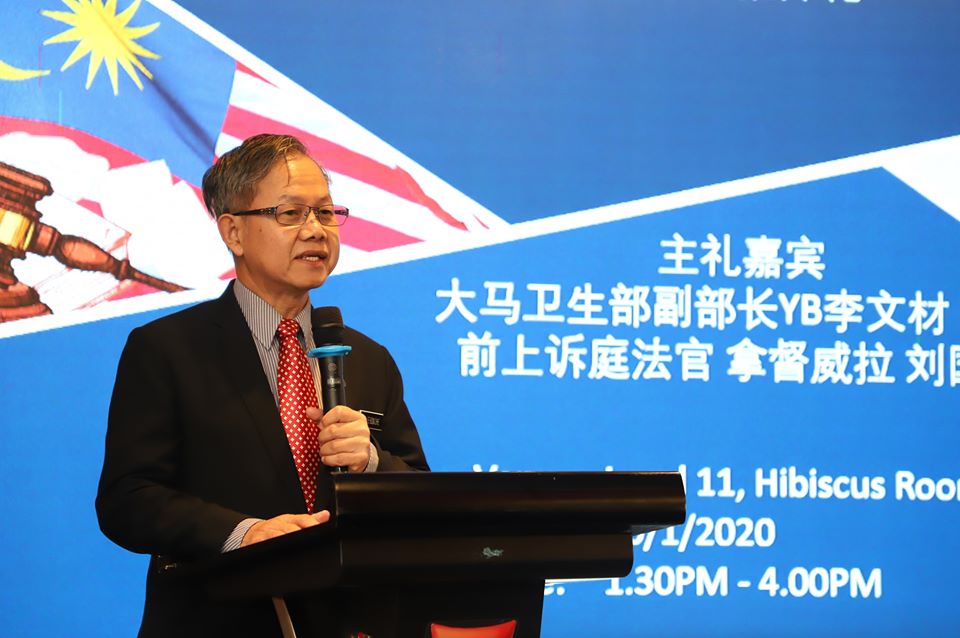KUALA LUMPUR, June 9 — Former Deputy Health Minister Dr Lee Boon Chye advocated general standard operating procedures (SOPs) across industries to curb Covid-19, instead of specific guidelines for each sector.
He said businesses with low-risk coronavirus transmission should only be required to follow the minimum SOPs, while higher-risk industries — like those involving bodily contact or gatherings — could have additional rules, such as limiting the number of people in a group to implement social distancing.
The Gopeng MP from PKR said even businesses involving bodily touch should be allowed to resume operations, pointing out that those with the highest risk of Covid-19 infection are in the health care sector, such as doctors, nurses, and other health care workers.
“For enforcers, it’s quite hard to study the various SOPs for each industry. It’s impossible to read the SOPs in a short period of time for construction, factories, services, haircuts, makeup services, and the like.
“So it’s better to implement general SOPs and for the high-risk ones, specific SOPs to control [Covid-19],” Dr Lee said in a video posted on Facebook last Saturday.
General SOPs across industries, he said, should comprise temperature and symptom screening for customers and workers; social distancing between staff and customers; hand sanitiser or an area to wash hands; encouragement for everyone to wear face masks in public areas at business premises, such as eating areas and lifts; and regular sanitisation activities.
The National Security Council (NSC) website lists 27 SOPs for various sectors under different ministries, with the overall SOPs on the reopening of the economy totalling 214 pages.
Dr Lee also said industries may not understand how to follow detailed SOPs, citing restaurants, for example, that have tables of different sizes. The six-page SOP for restaurants, hawker centres, and roadside stalls with a roof mandates two metres’ distance between tables and a maximum of four customers per “large” table.
“Some tables can seat 20 or 30 people, so if we limit such huge tables to only four people, it doesn’t make sense. If we arrange, say, four rectangular tables to become one big table, does that count as one or four tables?
“When the SOP is so detailed, it will cause disputes. What’s more important is to set SOP to ensure social distancing, like customers must have [six]-feet or one-metre social distancing and so on. It should be a guideline instead of a detailed SOP.”
Dr Lee also recounted his experience in the Pakatan Harapan (PH) government where data-sharing between departments and ministries was limited, as information from one ministry may not necessarily be shared with another.
“This affects the functioning of government. The government should have a common platform to share data, whether it’s from the Finance Ministry; the Women, Family and Community Development Ministry; the Youth and Sports Ministry; the Education Ministry; or the Health Ministry.”








